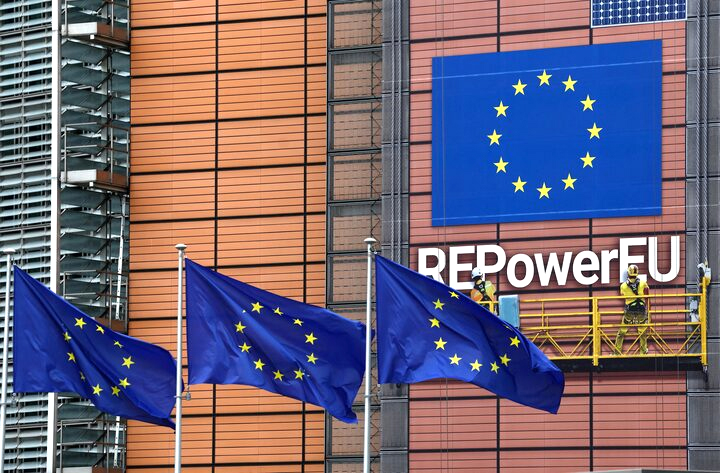A new European proposal is arriving to reshape the sustainability landscape and highlight the fine line between compliance and substance
By Emilios Charalambous and Maria Aristidou
In February 2025, the European Commission presented the Omnibus Simplification Packages, a new bundle of legislative proposals aimed at easing the sustainability-related compliance obligations imposed on businesses operating within EU.
The EU set the bar high with the Green Deal, but many businesses struggled to keep up. The Omnibus was primarily introduced in response to complaints from small and medium enterprises, who argued that the new sustainability rules were too complex, time-consuming and costly. At the same time, several member states formally expressed their desire for more direct support in enhancing competitiveness and restoring investment freedom for European companies. The Omnibus is part of the European Commission’s broader vision for a more dynamic and competitive economy.
If adopted, the package is expected to bring about significant legislative changes. Among other things, it foresees a substantial reduction in the administrative burden, estimated at 25 per cent for all businesses, and up to 35 per cent for small and medium-sized enterprises (SMEs).
In its effort to simplify the existing legislation on sustainability, the European Commission proposed this package of reforms, which touches upon five key EU legal instruments:
- The CSRD (Corporate Sustainability Reporting Directive), which deals with rules regarding social and environmental information that companies have to report;
- The CSDDD (or CS3D) – the Corporate Sustainability Due Diligence Directive, which mandates companies to identify, prevent and mitigate adverse human rights and environmental impacts within their supply chains;
- The EU Taxonomy – a classification system established to clarify which economic activities are environmentally sustainable, in the context of the European Green Deal;
- The CBAM (Carbon Border Adjustment Mechanism), a “carbon levy” on imports
- The InvestEU Regulation – a part of the European Commission’s measures attempting to ensure Europe remains an attractive investment destination.
The core idea behind the package is to preserve the EU’s environmental and social goals, without overwhelming businesses in bureaucracy. The new approach focuses primarily on large companies, which tend to have the greatest environmental and social impact, while aiming to shield smaller businesses from obligations they cannot realistically meet.
CSRD
Up until now, the CSRD provided that all companies with more than 250 employees, or with a turnover exceeding €50 million, or with a total balance sheet above €25 million, were required to submit ESG (Environmental, Social and Governance) sustainability reports. In practical terms, this meant that around 50,000 companies across the EU had to prepare such reports.
Under the new Omnibus proposals, the scope of the CSRD is significantly narrowed. Going forward, only companies with more than 1,000 employees and either a turnover of at least €50 million or a balance sheet above €25 million will be required to submit full sustainability reports. As a result, the number of companies falling under mandatory reporting is expected to drop by approximately 80 per cent, a significant reduction. The remaining companies will be exempt from the obligation but may opt to follow lighter, voluntary reporting standards for SMEs which will be issued by the EU.
The package also introduces practical changes to how sustainability reports will be structured. Firstly, the amount of information to be included in the reports is estimated to be drastically reduced by 25 to 50 per cent.
Additionally, while the previous rules required strict audits by independent verifiers, the new regime introduces a lighter form of review, known as “limited assurance”, which will now be sufficient.
Finally, reporting deadlines for certain company categories, originally due to begin submitting reports in 2026 or 2027, will now be postponed to 2028, thereby providing more time to adapt to the legal requirements.
CSDDD (CS3D)
The Corporate Sustainability Due Diligence Directive (CSDDD), which entered into force on July 25, 2024, introduces a new legal framework requiring companies to take responsibility for human rights and environmental impacts across all their activities and value chains. EU member states have until July 26, 2026 to transpose the directive into national law, with implementation to be phased in from 2027 onwards, depending on the size of the company.
The CSDDD requires companies to carry out due diligence throughout their entire value chain, including verifying whether suppliers engage in human rights violations, environmental harm, or child labour exploitation. Under the existing framework, companies are required to perform annual risk assessments, maintain oversight over the entire supply chain, and, as a last resort, terminate business relationships when violations occur.
The Omnibus proposes risk assessments every five years and mandatory auditing only for direct partners, while the explicit obligation to terminate the business relationship is abolished.
Additionally, the entry into force of the directive is postponed from July 2027 to July 2028, to give companies more time to prepare for implementation.
These amendments are being made to reduce the need for companies to monitor all stages and factors, but only where there is valid risk information.
EU taxonomy
Under the Omnibus proposals, mandatory reporting will only apply to companies with more than 1,000 employees and an annual turnover exceeding €450 million. All other companies will have the discretion to submit partial reports if they wish to showcase their efforts to align with the EU’s green objectives.
Moreover, companies will no longer be required to report on small-scale activities, specifically if an activity represents less than 10 per cent of their total turnover.
CBAM
As part of the changes included in the Omnibus package, the Carbon Border Adjustment Mechanism (CBAM) also introduces some important changes. CBAM is the EU’s environmental levy on imported goods with high carbon footprints, ensuring that the application of EU climate law is not rendered ineffective due to regulatory discrepancies with non-EU trading partners.
One of the biggest changes is that small importers will now be clearly exempt. If a company brings in less than 50 tonnes of CBAM goods per year, equal to about 80 tonnes of carbon dioxide, they won’t have to follow the main reporting rules. They will still need to declare it on their customs forms and monitor how much they import to ensure they don’t exceed the limit. This exemption is expected to help around 90 per cent of current importers, most of which are small businesses.
For companies that do stay within the CBAM system, things are also getting easier. The new rules simplify how emissions are reported and give more options on how to calculate the data, that is either with real emission numbers or using standard values. In some cases, there won’t even be a need for extra paperwork or third-party checks.
Finally, a formal review of CBAM is scheduled for 2026. The EU intends to evaluate how effectively the mechanism is functioning, whether its scope should be extended to additional sectors, and how EU exporters can be supported to remain competitive.
The InvestEU regulation
While the InvestEU programme tried to achieve over €372 billion investments in the period 2021-27, boosting innovation, job creation and long-term funding in Europe, it received severe criticism for its bureaucratic complexity, opaque decision-making processes and greenwashing risks.
The new proposals aim to simplify the regulation by reducing reporting requirements to lower the administrative burden imposed on the final recipients, most of who are SMEs – a change expected to save around €350 million.
Simultaneously, the proposed measure will attempt to mobilise an additional €50 billion in investments by increasing the size of the EU guarantee by €2.5 billion and facilitating the combined use of the InvestEU guarantee with existing capacity available under three legacy programmes (EFSI, CEF Debt Instrument and InnovFin Debt Facility) to support new InvestEU financing and investment operations.
Through this streamlined process, the InvestEU regulation will hopefully drive growth more effectively and encourage innovation in key sectors.
What does all this mean for businesses?
The proposals set out in the Omnibus Package may lead to significant practical benefits.
First, compliance costs are expected to fall significantly, with an estimated total saving of around €6.3 billion annually. At the same time, since there will be fewer requirements, fewer internal working hours will be required, making day-to-day operations smoother for businesses.
The regulatory weight is now being placed on large companies, since they also have the greatest environmental and social impact, while SMEs may now, if they choose to, follow simplified reporting standards.
The Omnibus has sparked considerable debate regarding the future trajectory of EU sustainability policy. For many, particularly environmental organisations, the Omnibus is perceived as a backwards step with critics arguing that the EU is diluting its policy and commitments, increasing the risk of sacrificing ESG principles on the altar of competition.
On the other hand, reality cannot be overlooked. Many SMEs simply lack the resources and technical infrastructure to meet current reporting requirements. Experience has shown that overregulation, no matter how well intentioned, can often lead to opposite outcomes.
Europe is already one of the most regulated regions in the world in many areas, particularly concerning environmental standards. If the EU wants to remain a competitive and attractive business destination worldwide, it must ensure that regulation is growth friendly. Simplification efforts, such as the Omnibus package, could be essential to maintaining Europe’s ability to foster innovation and attract investment.
In this light, the Omnibus reforms may not be a step back, but a necessary adjustment in accordance with the principles of proportionality. An adjustment that seeks to align sustainability requirements with the real capacities of companies, without darkening the EU’s long-term vision of a green and sustainable economy.
Emilios Charalambous and Maria Aristidou are associates at Elias Neocleous & Co LLC







Click here to change your cookie preferences